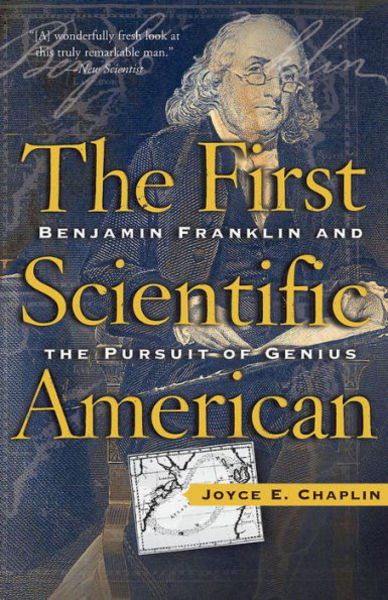BOOK REVIEW: The First Scientific American by Joyce E. Chaplin
Published 9:30 am Saturday, November 3, 2018

- The First Scientific American
Benjamin Franklin gets two brief lines, lumped with other scientists/philosophers of his time, in Bill Bryson’s epic scientific history, “A Short History of Nearly Everything.”
Short-shrift for the man who was considered at the time one of the preeminent scientists of the 18th century on two continents.
Trending
But it’s typical treatment for Franklin. He gets little respect in most modern scientific histories. The man whose experiments in lightning were groundbreaking, who charted the Gulf Stream and conducted experiments and studies in other intellectual pursuits of the mid to late 1700s is usually derided for experiments that had practical applications.
Not in Joyce E. Chaplin’s “The First Scientific American: Benjamin Franklin and the Pursuit of Genius.”
Her book gives Franklin his scientific due.
She delves deeply into his experiments with lightning, including the famed kite in the storm, his shipboard observations and experiments in the Gulf Stream, work in meteorology, population estimates, etc.
While his works had wide applications and broad influence with other natural philosophers of his era, Chaplin examines why he may not be taken more seriously today as a scientist – though it is also the reason why we know Franklin today.
It was the dichotomy of Franklin’s life.
Trending
Or as the well-known adage proclaims, Franklin “snatched lightning from the sky and the scepter from the tyrant.”
By tying himself to the cause and full-time work of American independence, Franklin no longer had time for in-depth scientific studies. Though he would not have been effective as a founding father, especially in securing funding and an alliance with France, if not for his international fame as a scientist.
Chaplin asks would Franklin even receive the brief notices in scientific histories if not for the fact he is famous for shaping the United States as a nation? Or would he have been more famous as a scientist if he could have spent his later years in experimentation and not in the struggle for independence?


